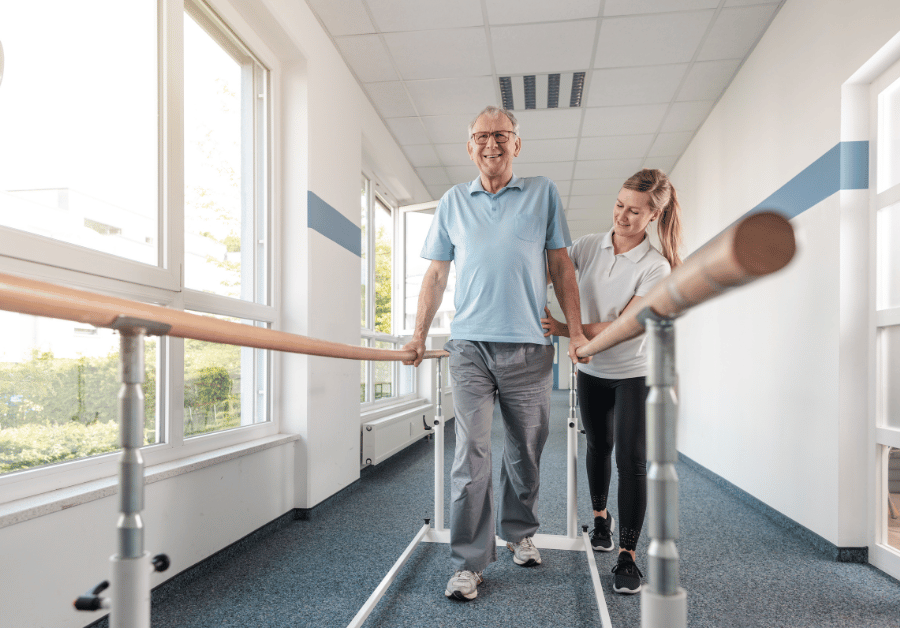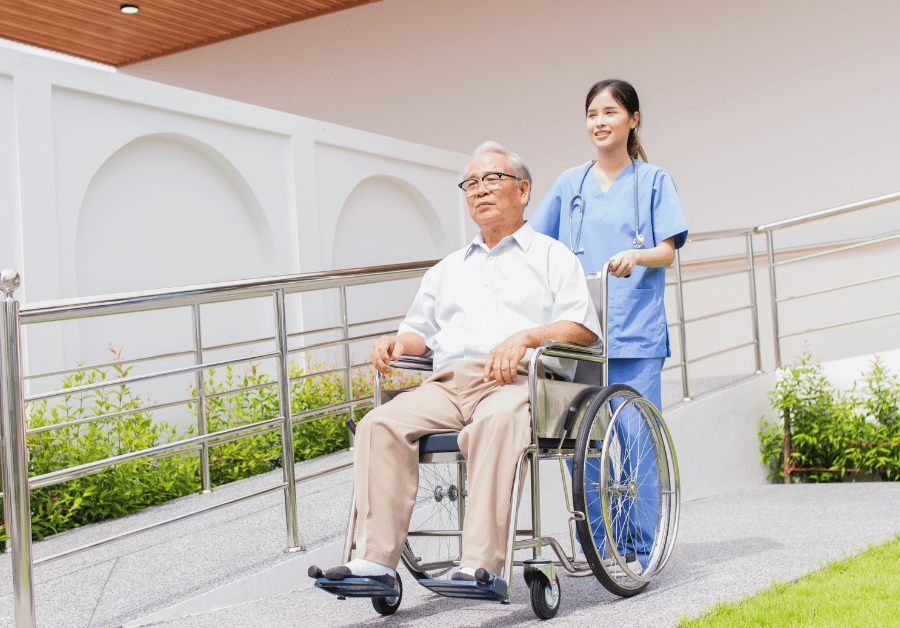How to Reduce Social Isolation NDIS: Your Guide to Connection
How to Reduce Social Isolation NDIS: Your Guide to Connection in Australia
Social isolation is a significant challenge faced by many people, and for individuals with disability in Australia, it can be particularly pronounced. The feeling of being disconnected, of lacking meaningful social networks and reduced interaction with the wider community, can deeply impact wellbeing and quality of life. Fortunately, the National Disability Insurance Scheme (NDIS) stands as a powerful tool to help reduce social isolation, fostering greater social connection and paving the way for a more inclusive life. This comprehensive guide will explore how the NDIS can be leveraged to achieve greater confidence, increase opportunities for participation, and build robust social networks.
At Alliance Care Support, we understand the profound impact that genuine social inclusion and community access can have. Our mission aligns perfectly with the NDIS's central pillar of choice and control, empowering individuals to live fulfilling lives, free from the grips of isolation. Whether you're in Sydney, Melbourne, Perth, Brisbane, Adelaide, or Hobart, the principles and strategies outlined here can help you or your loved one connect more deeply with the local community.
Understanding Social Isolation and the NDIS Framework

Before diving into practical solutions for how to reduce social isolation NDIS, it's crucial to understand what social isolation truly means and how the NDIS is designed to address it. While loneliness in Australia is a universally understood human experience, social isolation refers to a lack of social contact and connection, often leading to feelings of sadness, anxiety, and a reduced sense of belonging.
What is Social Isolation and Why Does it Matter for People with Disability?
Social isolation is more than just being alone; it's the absence of meaningful social networks and interactions. For people aged with disability, statistics often show higher rates of social isolation compared with those without disability. This can be due to various factors, including physical barriers, communication challenges, societal attitudes, or limited access to appropriate support services. The national preventive health strategy for Australia highlights that a strong sense of value and social connection can prevent and reduce feelings of isolation. This makes addressing social isolation a critical component of overall health and wellbeing.
The NDIS and its Core Principles
The NDIS was established to provide funding for reasonable and necessary supports to people with permanent and significant disability, enabling them to achieve their goals, including social inclusion and community participation. A central pillar of the NDIS is choice and control. This means participants have the power to decide how their plan funding is used to best meet their individual needs, including those related to reducing isolation. The scheme's design inherently supports the development of larger social networks and reduced isolation by funding activities and supports that promote community engagement.
The NDIS framework encourages a shift from welfare-based services to a participant-led approach, where the focus is on building capacity and fostering independence. This includes supporting social connection and community access, recognising these as fundamental human rights and essential for a good quality of life. The NDIS places a strong emphasis on empowering individuals to participate fully in society, which directly combats the effects of social isolation.
Leveraging Your NDIS Plan to Reduce Social Isolation
Your NDIS plan is a powerful document that can unlock a world of opportunities for social connection. Understanding the different support categories and how they can be utilised is the first step in learning how to reduce social isolation NDIS effectively.
Core Supports: Daily Living and Community Participation
Core Supports are designed to help you with everyday activities and to participate in your community. This category is often the most direct pathway to reducing isolation. It includes:
- Assistance with Daily Life: This can cover support workers who assist with personal care, household tasks, and, importantly, transport to social activities. Imagine a support worker helping you get to a local book club in Perth or a craft group in Adelaide, making regular attendance possible. These larger social networks develop over time with consistent participation.
- Social, Community, and Civic Participation: This is explicitly designed to fund activities that help you engage with others and participate in your local community. It can include fees for joining clubs, classes, or group activities. For example, your plan might fund your membership at a sporting club in Brisbane, allowing you to build deeper relationships with friends and family within that community setting. Group-based social and community participation is often highly effective in building new friendships and expanding social networks and reduced isolation.
- Transport: Funding for transport can remove a significant barrier to social participation. Whether it's taxis, ride-sharing, or a support worker driving you, reliable transport ensures you can access community events, meet friends, and attend appointments without stress. This directly increases opportunities for social interaction.
Capacity Building Supports: Skill Development and Social Work Services
Capacity Building Supports are about helping you develop skills and independence. While not always immediately obvious, these supports play a crucial role in long-term social connection and reduced isolation:
- Increased Social and Community Participation: This specific sub-category helps you build skills to engage more effectively in community activities. This might involve learning communication strategies, developing social cues, or building confidence to join new groups.
- Improved Daily Living: Supports here can include occupational therapy to improve functional abilities, which in turn makes it easier to participate in social settings.
- Improved Relationships: This support category focuses on developing positive behaviours and interactions, crucial for forming and maintaining friendships and larger social networks.
- NDIS Social Work Services: As highlighted by AHP Disability & Home Care, NDIS social work services are invaluable. Social workers can help you identify barriers to social connection, develop strategies to overcome them, and connect you with relevant community supports. By fostering self-advocacy and supporting meaningful participation, NDIS social workers help participants and their families get the most out of their plans, directly helping to reduce isolation. They can also assist with psychosocial recovery, offering effective interventions that reduce social isolation in this population. This study highlights the role the NDIS can play in supporting social connection and wellbeing.
Capital Supports: Assistive Technology and Home Modifications
While not directly social, Capital Supports (like assistive technology and home modifications) can significantly enhance your ability to participate socially by improving accessibility and independence. For instance, a modified bathroom or a communication device can make it easier to host friends at home or engage in conversations during community outings, thereby indirectly supporting larger social networks and reduced isolation.
Practical Strategies to Foster Social Inclusion and Community Access

Beyond your NDIS plan, there are countless ways to actively pursue social connection and reduce social isolation. These strategies, often supported by your NDIS funding, can help you build a vibrant social life.
Joining Community Groups and Activities
One of the most effective ways to combat social isolation is to actively participate in community life. Australia offers a diverse range of groups and activities that cater to various interests. Consider:
- Hobby Groups: Art classes, book clubs, gardening groups, or craft workshops in your local area (e.g., in the inner west of Sydney or regional Victoria). These provide a shared interest as a basis for conversation and friendship.
- Sporting and Recreation Clubs: Many organisations offer inclusive sports programs (e.g., wheelchair basketball, adaptive swimming) that promote physical activity and team camaraderie.
- Volunteer Work: Contributing to a cause you care about can provide a sense of purpose and connect you with like-minded individuals.
- Community Centres: These hubs, found in every major Australian city and regional town, often run a variety of programs, from cooking classes to language lessons, offering excellent opportunities to connect with others and participate in your local community.
- Peer Support Groups: Connecting with other people aged with disability who share similar experiences can be incredibly validating and empowering. These groups offer a safe space to share, learn, and build a strong sense of community.
Utilising Technology for Connection
In our increasingly digital world, technology can be a powerful tool to bridge distances and foster social connection. This is especially true for those who might find physical outings challenging:
- Online Communities: Forums, social media groups, and dedicated platforms for people with disability offer spaces to connect, share experiences, and find support from anywhere in Australia.
- Video Calls: Staying in touch with friends and family through video calls can reduce feelings of isolation, especially if they live far away.
- Accessibility Features: Modern technology often includes features that make communication easier for people with various disabilities, enhancing their ability to participate in online social networks. It's important to be aware of online safety; eSafety - external site is Australia's national independent regulator and provides resources on staying safe online.
Supported Independent Living (SIL) and Shared Living
For many, Supported Independent Living (SIL) provides a fantastic pathway to reduce social isolation. Living in a shared home environment with other NDIS participants, supported by dedicated care staff, naturally fosters larger social networks and reduced isolation. Alliance Care Support offers NDIS-approved SIL homes designed with accessibility features, ensuring safety and comfort while promoting a vibrant housemate community. This setting offers a unique blend of independence and built-in social connection, leading to deeper relationships with friends and family who visit, and new friendships with housemates.
In-Home Care and Personalised Support
Even for those receiving in-home care, opportunities to reduce social isolation abound. Alliance Care Support's in-home care services are not just about personal care; they're about enhancing quality of life. Our compassionate support workers can assist with:
- Facilitating outings to community events, parks, or local cafes.
- Helping you engage in hobbies at home that connect you to others (e.g., online gaming, virtual craft groups).
- Providing companionship and engaging conversation, offering a direct form of social connection.
This personalised care can significantly reduce social isolation by ensuring that you have the support needed to participate in activities both inside and outside your home.
Respite Services
Respite services offer a temporary break for primary carers, but they also provide an excellent opportunity for NDIS participants to experience new social environments. Whether it's a short-term stay in a respite home or a community-based activity, respite can introduce you to new people and experiences, further building your social networks and reduced isolation. It allows for a change of scenery and the chance to engage in group-based social activities that might not be part of your usual routine.
Overcoming Common Barriers to Social Connection

While the NDIS offers significant support, barriers to social inclusion can still exist. Understanding and addressing these can further enhance your ability to reduce social isolation.
Transportation and Accessibility
As mentioned, transport can be a major hurdle. Ensure your NDIS plan adequately covers your transport needs for social outings. Beyond transport, physical accessibility of venues (ramps, accessible toilets) is crucial. Always check ahead when planning activities in new places, whether it's a gallery in Melbourne or a community hall in Hobart.
Communication Challenges
If communication is a barrier, explore NDIS supports for communication aids, speech therapy, or communication partners. Learning strategies to express yourself effectively can significantly improve social interactions and foster deeper relationships.
Anxiety and Confidence
The thought of meeting new people or entering new social situations can be daunting, leading to reduced participation and increased feelings of isolation. Your NDIS plan can fund supports like therapy (e.g., psychosocial recovery coaching) or social skills training to help build greater confidence and the feeling that they are safe in the community. Starting small, like attending a local library group or a short walk with a support worker, can gradually build confidence.
Safety and Protection
Ensuring safety in social settings is paramount. This includes understanding personal safety, recognising grooming behaviours (as discussed by the National Office for Child Safety), and knowing how to report concerns. For example, children and young people that are socially isolated or are more vulnerable to exploitation. Learning about safe social practices, both online and offline, is part of building confidence and fostering secure connections. Additionally, general health and safety, including infection control – standard and transmission-based precautions, are important considerations when participating in group activities. While seemingly unrelated, maintaining good health practices (like those outlined in Australian guidelines for the prevention and control of infection in healthcare) ensures you can participate consistently and safely, without unnecessary interruptions due to illness, thereby sustaining your social connections.
The Role of NDIS Providers: Alliance Care Support's Commitment
Discover a more connected life with Alliance Care Support
Contact Us TodayFinding the right NDIS provider is key to effectively learning how to reduce social isolation NDIS and achieve your social goals. Alliance Care Support is dedicated to empowering individuals with disabilities across Australia by providing tailored care, support, and resources that actively promote social inclusion.
Our focus on Supported Independent Living (SIL), in-home care, and respite services is designed to create environments that foster independence and enhance quality of life. Our NDIS-approved homes are equipped with accessibility features, ensuring safety and comfort for participants, and providing a built-in community. We believe in providing compassionate care that goes beyond basic needs, actively encouraging and facilitating opportunities for social connection and community participation.
Whether it's helping you access a Queensland Community Support Scheme activity, connecting you with local groups in your area (like those in regional NSW or outer suburbs of Melbourne), or simply providing companionship and support to explore new interests, our team is committed to helping clients achieve their personal goals. We understand that social connection is vital for mental and emotional wellbeing, and we work tirelessly to enable our clients to lead fulfilling lives in a supportive community. Our approach ensures that you are not just receiving care, but also building a richer, more connected life, expanding your social networks and reduced isolation through meaningful engagement.
Supports may come from several categories, including:
Core Supports for community participation, daily activities, and transport.
Capacity Building for developing social skills, confidence, and relationships.
Social Work Services to identify barriers and connect you with community resources.
Supported Independent Living (SIL) or respite to create shared living and group social opportunities.
Conclusion: A Connected Future with the NDIS
Reducing social isolation for people with disability is a critical endeavour, and the NDIS provides a robust framework to achieve this. By understanding your NDIS plan, leveraging its various support categories – from core community participation to capacity-building social work services – and actively seeking out opportunities for social connection, you can significantly enhance your quality of life. Remember, building larger social networks and reduced isolation leads to greater confidence and a stronger sense of belonging. The journey to a more connected life is a collaborative one, involving individuals, families, and dedicated NDIS providers like Alliance Care Support.
Don't let social isolation define your experience. Take control of your NDIS plan and explore the vast opportunities for social inclusion available across Australia. Your path to a richer, more connected life starts now.
Ready to explore how Alliance Care Support can help you reduce social isolation and foster deeper connections? Learn more about our personalised care, Supported Independent Living, and respite services today.
Visit Alliance Care Support to find your path to greater connection and community participation.
